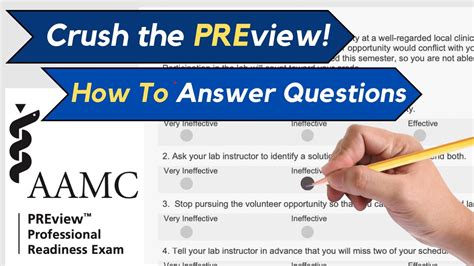The preview exam is a preparatory assessment that plays a crucial role in helping students prepare for the actual exam. It serves as a diagnostic tool to identify areas where students need to focus their studies and provides valuable insights into the overall content, format, and difficulty level of the main exam. This guide will delve into the benefits, drawbacks, and key factors to consider when determining whether or not taking the preview exam is the right choice for you.

Benefits of Taking the Preview Exam
-
Identify Areas of Weakness: The preview exam pinpoints specific topics and concepts that you may need to reinforce your understanding of. By addressing these areas early on, you can focus your preparation efforts and improve your chances of performing better on the actual exam.
-
Gauge Exam Difficulty: The preview exam provides a glimpse into the complexity and scope of the actual exam. You can assess the question types, time constraints, and overall difficulty level, allowing you to adjust your study strategies accordingly.
-
Practice Time Management: The preview exam simulates the time pressure of the actual exam, enabling you to develop effective time management skills. You can learn to allocate your time wisely, prioritizing questions based on their importance and difficulty.
-
Build Confidence: Completing the preview exam can boost your confidence by giving you a sense of familiarity with the exam format and content. It can reduce anxiety and allow you to approach the actual exam with a more positive mindset.
Drawbacks of Taking the Preview Exam
-
Time Commitment: Taking the preview exam requires a significant time investment, which may come at the expense of other study activities. It is important to weigh the potential benefits against the time it will take away from your overall preparation.
-
May Cause Anxiety: For some students, taking the preview exam can create unnecessary anxiety and stress. If you are prone to test anxiety, it may be better to focus on other preparation methods that are less likely to aggravate your nervousness.
-
May Not Reflect Actual Exam: While the preview exam aims to mimic the actual exam, it is not always a perfect representation. There may be variations in content, format, or difficulty level between the two exams.
Factors to Consider
When deciding whether or not to take the preview exam, consider the following factors:
-
Your Study Habits: If you are a highly organized and disciplined student who thrives on structure and accountability, the preview exam can be a valuable tool to guide your preparation.
-
Your Time Constraints: If you have limited time to prepare for the exam, it may be more beneficial to focus on other study methods that yield quicker results.
-
Your Confidence Level: If you are confident in your abilities and feel well-prepared for the exam, the preview exam may not be necessary. However, if you are feeling unsure, it can provide reassurance and direction.
-
Your Exam Type: The relevance of the preview exam varies depending on the type of exam you are preparing for. For some exams, such as standardized tests, the preview exam can be highly beneficial. However, for other types of exams, such as essay-based exams, the preview exam may be of less value.
How to Make the Most of the Preview Exam
If you decide to take the preview exam, follow these tips to maximize its benefits:
-
Take it Seriously: Approach the preview exam as if it were the actual exam. Set aside dedicated time, create a conducive study environment, and treat it as an opportunity to assess your strengths and weaknesses.
-
Review Results Thoroughly: After completing the preview exam, carefully review your results. Identify areas where you performed well and areas where you need improvement. Adjust your study plan accordingly.
-
Don’t Overstress: Remember that the preview exam is just one part of your preparation. Don’t let a poor performance on the preview exam discourage you. Focus on the areas where you need to improve and continue your preparation with confidence.
-
Utilize Other Study Resources: In addition to the preview exam, make use of other study resources such as textbooks, practice questions, and online materials. A comprehensive approach to preparation will yield the best results.
Alternatives to the Preview Exam
If taking the preview exam is not the right choice for you, consider these alternative preparation methods:
-
Practice Questions: Solve practice questions from reputable sources to familiarize yourself with the types of questions you may encounter on the actual exam.
-
Textbook Review: Thoroughly review the assigned textbooks and course materials. Make notes, highlight important concepts, and summarize key takeaways.
-
Study Groups: Join study groups with classmates to discuss concepts, share notes, and quiz each other. Collaborative learning can be highly effective.
-
Online Resources: Utilize online resources such as educational videos, tutorials, and simulations to enhance your understanding of the subject matter.
Conclusion
The decision of whether or not to take the preview exam is a personal one that depends on your individual study habits, time constraints, and confidence level. If you are seeking a structured and diagnostic assessment of your preparation, the preview exam can be a valuable tool. However, if you are short on time or prone to anxiety, alternative preparation methods may be more suitable. Remember that a comprehensive and consistent approach to studying is key to success on any exam.
